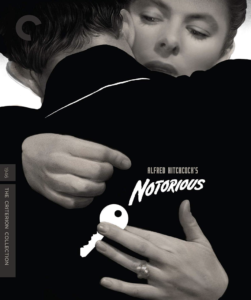By Armando Inquig
 The Bicycle Thieves lays bare the harsh reality of life in post-war Italy. Released in 1948, during a time of deep economic struggle, the film captures the raw aftermath of war with a simplicity that makes its message all the more powerful. Directed by Vittorio De Sica, it’s one of the defining works of Italian neorealism, and still widely considered one of the greatest films ever made.
The Bicycle Thieves lays bare the harsh reality of life in post-war Italy. Released in 1948, during a time of deep economic struggle, the film captures the raw aftermath of war with a simplicity that makes its message all the more powerful. Directed by Vittorio De Sica, it’s one of the defining works of Italian neorealism, and still widely considered one of the greatest films ever made.
The story follows Antonio Ricci, a down-on-his-luck man in Rome trying to provide for his family. Things start to look up when he finally lands a job putting up advertising posters — but the job depends on having a bicycle. His wife, Maria, sacrifices their bed linens to get the bike back from a pawn shop, and Antonio heads out to work, hopeful for the first time in a long while.
But his luck quickly turns. While he’s up on a ladder hanging a poster, someone steals his bicycle. He gives chase, but the thief vanishes into the crowd.
What follows is a long and often heartbreaking day as Antonio and his young son, Bruno, comb the city trying to find the bike. Their search takes them through different parts of Rome, each offering a glimpse into the city’s wide economic gap. At a bustling market full of stolen goods, they come up short. At one point, they find someone who may know the thief, and they track down a suspect. But Antonio can’t prove anything, and the man walks free.
As the day wears on, Antonio’s desperation grows. Eventually, in a moment of hopelessness, he tries to steal a bicycle himself — only to be caught in front of a crowd, and most painfully, in front of Bruno. The bike’s owner, seeing their situation, decides not to press charges.
The film ends with Antonio and Bruno walking away together, hand in hand, fading into the crowd. The bicycle — and the hope it once brought — is gone.
De Sica paints a painfully honest picture of what poverty can do to a person. Antonio is not a hero or a villain — just a man pushed to his breaking point by a world that doesn’t seem to care. His story still resonates, not because of the time or place, but because of the emotions it captures so clearly: struggle, pride, shame, and love.
The Bicycle Thieves is moving, human, and unforgettable.
The Criterion Collection recently released the film on Blu-ray in a 4K digital restoration. This special edition also includes a 2003 documentary on screenwriter and longtime De Sica collaborator Cesare Zavattini, directed by Carlo Lizzani.
 Disney’s Tron: Ares, the latest installment in the long-running sci-fi franchise, will arrive on digital platforms December 2, with a 4K Ultra HD Blu-ray and DVD release set for January 6, 2026.
Disney’s Tron: Ares, the latest installment in the long-running sci-fi franchise, will arrive on digital platforms December 2, with a 4K Ultra HD Blu-ray and DVD release set for January 6, 2026.




